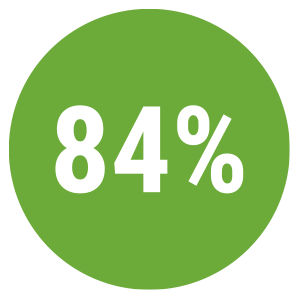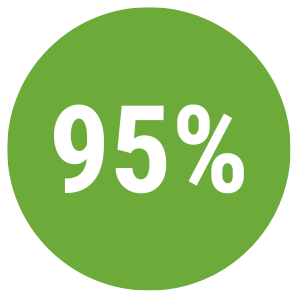ABOUT US
BACKGROUND
Imperial Sports Ground is located within the 10 most deprived neighbourhoods in Bristol, in the fourth most deprived decile of the UK, and is surrounded by areas in the most deprived 10% of the country. (Source: Bristol JSNA Health and Wellbeing Profile 2021/22)
This has far-reaching implications on the Bristol community in many areas, one of them being children’s health and, particularly, the wellbeing of disabled children due to a lack of physical activity and exercise.
The effect of Covid-19 and the resultant loss of family income, furthermore, worsen this situation and have a profound effect on Bristol families and, especially, those with children with disabilities.
More information further below on this page.
A way out
But, there is also good news. Due to its geographic location and relevant amenities, Imperial Sports Ground is ideally positioned and geared to help counter the effects of deprivation and Covid-19. We do so by offering sports, leisure and recreational facilities to help to improve the lives of those in and around Bristol.
However, our purpose is not only to make these facilities accessible to our communities. We also actively engage and provide coaching, support and opportunities to participate in sport and other physical activities. This helps to develop healthy bodies and the physical and mental capacities of children and others who make use of our services.
Facilities and activities
Imperial Sports Ground provides a host of facilities and activities, ranging from outdoor football pitches and a bowls club, an indoor gym and squash courts, as well as outdoor sports projects in partnership with the Robins Foundation. We also have a bar and restaurant, and a well-equipped function room.
We, furthermore, have the full support of the following home clubs:
- Bristol Imperial Rugby
- Bristol Imperial Football
- Whitchurch Sports Junior Football Club
- Bristol Imperial Bowls Club

sound managerial and financial governance
As a charity, Imperial Sports Ground is supported by investors and grant providers, and governed by a board of trustees
TRUSTEES
John Laycock DL (chairperson)
Trevor Smallwood OBE DL
Graham Morris
Graham is determined to create and offer opportunities to aspire people. Graham also believes in the power of the outdoors and exercise. Graham has delivered several improvements to the local area including the complete refurbishment of a local bike track. Graham is a voice for site users and the local community as we work to make the centre as accessible to as many people as possible.
Lee west
Lee is a partner at West & Co Accountants, a business strategist with extensive experience, knowledge, and insight. He enjoys assisting businesses and charities with directional strategy and key financial decisions. Having grown up in South Bristol, Lee has a deep connection to the area and is now passionate about creating positive opportunities for the community, particularly for young people.
TRADING
ENTITY
t/a Imperial Sports Ground
Company Registration Number: 05919240
REGISTERED
OFFICE
West Town Lane, Bristol, BS14 9EA
Tel: 0117 903 8681
CHARITY
NUMBER
No. 1118018
OUR HISTORY
The first first-class match on the ground was in 1957, when Somerset played Sussex Cricket Club in the County Championship. From 1957 to 1966, the ground played host to nine first-class matches, with the final first-class match held at the ground between Somerset and Hampshire County Cricket Club.
The ground also hosted List-A matches, the first of which was between Somerset and Gloucestershire County Cricket Club in the 1971 John Player League. Between 1971 and 1979, the ground held eight List-A matches, the last of which was between Somerset and Gloucestershire in the 1979 John Player League.
During its existence, the ground also played host to Somerset Second XI matches in the Minor Counties Championship, Second XI Championship and Second XI Trophy. Other than cricket, many hockey and football matches and championships were hosted on the Imperial Ground. (Source: Wikipedia.)
The Wills family – owners of the Imperial Tobacco Group – later donated the Imperial Athletic Ground to the Bristol City Council, as the site became unprofitable in its then existing guise. John Laycock – current chairman of the Imperial Sports Ground Board of Trustees – saw an opportunity in this and approached the Bristol City Council to make the centre available to be used as a sports centre for charity purposes.
They came to an arrangement and the city council issued a long lease to the South Bristol Sports Centre – trading as Imperial Sports Ground – a charity with the freedom to operate to fulfil its objectives.
On Saturday 12 May 2018, Imperial Sports Ground suffered a serious fire which affected a large part of the buildings. It took more than two years to rebuild, and in August 2020 the centre re-opened its doors, now also offering a brand new gym, function rooms and café/sports bar facilities, in addition to its outdoor amenities.
Deprivation and children’s health
The effect of deprivation on children’s health
Research has shown that, in England, children living in more-deprived areas are nearly twice as likely to become obese than those in less-deprived areas. In Hartcliffe and Withywood, for example, 41.4% of those in the age group 10 to 11 are overweight. Children and young people with disabilities, furthermore, are more likely to be obese than those without disabilities, and this risk increases with age. (Public Health England, 2014)
Furthermore, 84% of disabled children in the UK can’t access regular leisure facilities (Contact a Family, 2014), and 92% of parents feel that their child with complex needs did not have the same opportunities to play as their non-disabled peers. (SENSE – A case for Play 2016)
IN BRISTOL

of parents said that there is a lack of leisure facilities for their disabled children.
Regarding the activity levels of disabled children:
- during term-time, 30% of disabled children are ‘less active’, compared to 21% of non-disabled children (Activity Alliance); and
- 25% of disabled children say they take part in sport and activity all of the time at school, compared to 41% of non-disabled children (Activity Alliance).
During 2020:
-
disabled children were less likely than non-disabled children to have been active in a park or play area (64% vs 73%), or a leisure centre (53% vs 61%); and
-
72% of disabled children are twice as likely to be lonely compared to 36% of their non-disabled peers (Activity Alliance).

Three quarters of families report their overall financial situation has got worse as a result of the coronavirus pandemic.
Covid-19 impact
According to the website Family Fund, Covid-19 has had the following impact on UK families with disabled children (Family Fund – published April 2021):

One in five families raising disabled children experienced a “significant decrease” in income in past 12 months. A further 24% said they had experienced a “slight decrease” in income.

85% of families said they had £500 or less in the bank and 7 in 10 report having no savings to fall back on whatsoever.

Two in five families (45%) said they had not been able to afford new clothes in the last 12 months.

Families reported that the past 12 months had negatively affected their disabled or seriously ill children’s behaviour and emotions (82%).

Three quarters of families (75%) report the overall support available to them has decreased since the beginning of the coronavirus pandemic.

Three quarters of families (76%) report their overall financial situation has got worse as a result of the coronavirus pandemic.

Four in five families (79%) report that their overall health and wellbeing got worse since the beginning of the coronavirus pandemic.

Two in five families (42%) believe it will take more than a year before their lives return to normal.
CHARITY PROJECTS
Outdoor projects
The following weekly projects take place in partnership with the Robins Foundation:
Foster Care football
Robins talk – mental health football session
Frame football (for disabled players)
Football holiday camps (for youngsters to have fun and stay active during school holidays)
Project Inc football (a disability football programme which provides an opportunity for both young people and adults with disabilities the opportunity to make friends, get active and have fun – free of cost)
Slim2Win football (a men’s health and fitness initiative which uses the competitive nature of football to facilitate weight loss amongst programme participants)
Walking football (for males and females over 55 – a slower-paced game to normal football which enables participants of any age to be active and play the “Beautiful Game”)














